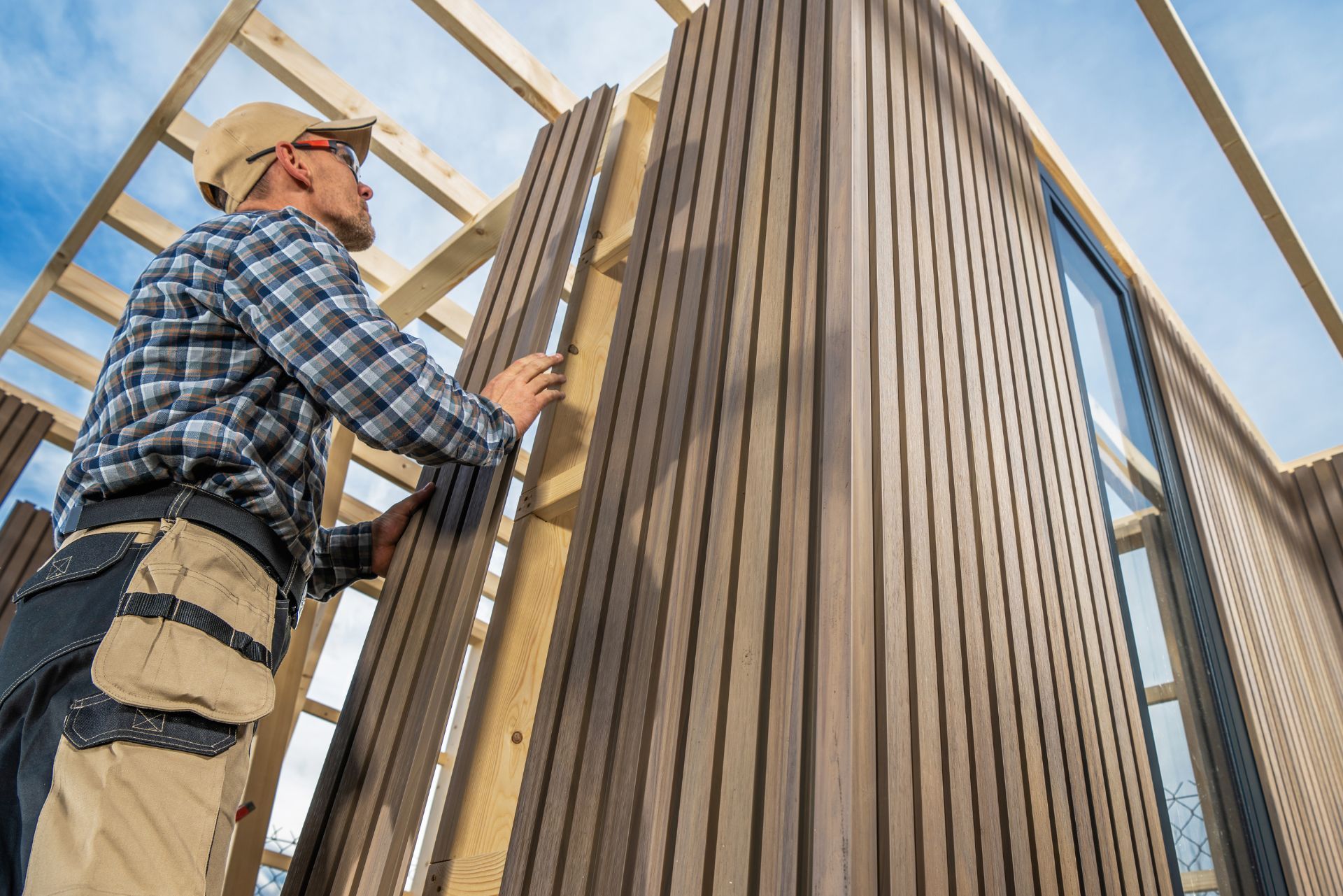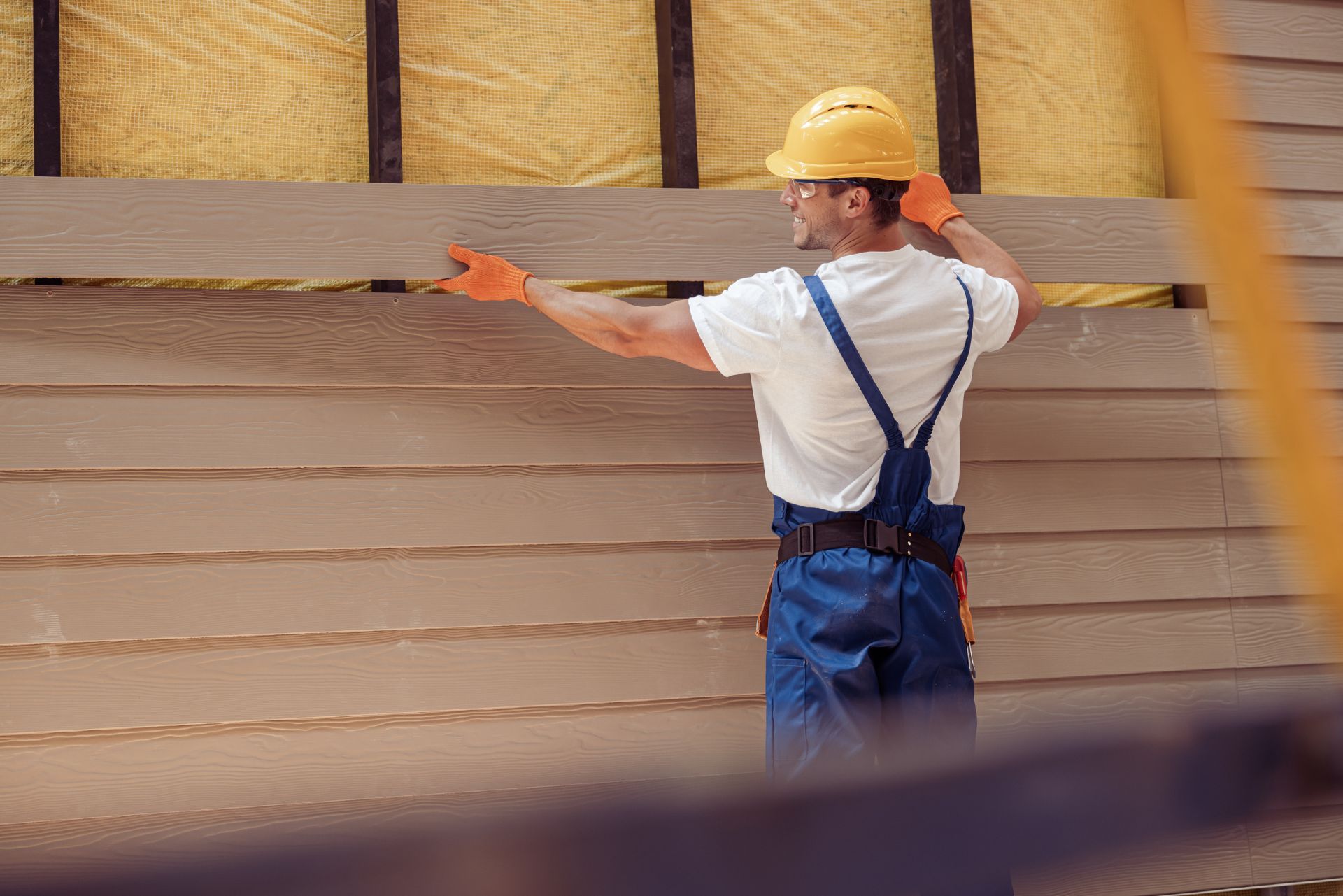Washington Siding Installation Contractor Insurance

or call us: 425-320-4280
Top 3 Recommended Policies

By: Lance Hale
Licensed Commercial Insurance Specialist
425-320-4280
When it comes to siding installation in Washington, especially in the Seattle area, understanding the importance of contractor insurance is crucial for both homeowners and professionals. With the region’s unique climate challenges and regulatory environment, ensuring that siding contractors carry the right insurance coverage protects everyone involved from financial risks and liabilities. This comprehensive guide will walk you through everything you need to know about siding installation contractor insurance in Washington, including why it matters, what types of coverage are essential, and how local market conditions influence costs and contractor requirements.
For those interested in the cost side of siding projects in Seattle, Angi provides detailed insights into labor rates and material expenses that help frame the bigger picture of hiring insured professionals.
Why General Liability Insurance Is Essential for Siding Contractors
General liability insurance is often considered the cornerstone of contractor coverage. For siding installation contractors, this type of insurance offers vital financial protection against claims arising from property damage or injuries that might occur during a project. For example, if a worker accidentally damages a homeowner’s window or if a passerby is injured by falling debris, the contractor’s general liability insurance covers the associated costs, shielding both the contractor and the homeowner from potentially significant out-of-pocket expenses.
According to industry experts at Coverage Cowboy, this insurance is not just a formality but a necessity that ensures a siding contractor can operate responsibly and sustainably. Without it, contractors risk severe financial losses and legal troubles, which can also jeopardize project timelines and quality.
Moreover, general liability insurance can enhance a contractor's reputation and credibility in a competitive market. Homeowners are more likely to hire a contractor who is fully insured, as it demonstrates professionalism and a commitment to safety. This can lead to increased business opportunities, as satisfied customers often share their positive experiences with others, further bolstering the contractor's standing in the community. Additionally, many clients, especially larger businesses or government entities, require proof of insurance before awarding contracts, making general liability coverage a key factor in securing lucrative projects.
In addition to protecting against accidents and damages, general liability insurance can also cover legal fees in the event of a lawsuit, which can be particularly costly. The legal landscape for contractors can be fraught with challenges, and having insurance can provide peace of mind, allowing contractors to focus on their work rather than worrying about potential legal repercussions. Furthermore, this insurance can sometimes include coverage for advertising injuries, such as claims related to copyright infringement or defamation, which can be particularly relevant for contractors who actively market their services online or through social media channels.
Washington State Requirements for Siding Contractors
In Washington, siding contractors must comply with state regulations that mandate proper registration, licensure, bonding, and insurance coverage. The Department of Labor & Industries oversees these requirements to maintain industry standards and protect consumers. Contractors must be registered and hold valid licenses to legally perform siding installation or repairs.
Moreover, bonding and general liability insurance are required to provide financial security in case of contractor default or damages. This regulatory framework ensures that homeowners hiring siding professionals in Seattle and across Washington are working with qualified and trustworthy individuals. The bonding process not only protects homeowners but also serves as a mechanism to ensure that contractors adhere to local building codes and safety standards, thereby fostering a safer construction environment.
In addition to these basic requirements, Washington State also emphasizes the importance of ongoing education and training for siding contractors. Many contractors are encouraged to participate in workshops and certification programs that keep them updated on the latest materials, techniques, and industry trends. This commitment to professional development not only enhances the skills of the contractors but also ensures that they are knowledgeable about sustainable practices and energy-efficient siding options, which are increasingly important to environmentally conscious homeowners.
For more detailed information on these requirements, Angi’s report on Washington contractor regulations offers a thorough overview. Understanding these regulations can empower homeowners to make informed decisions when selecting a contractor, ensuring that their siding projects are completed to the highest standards of quality and safety.

Impact of Seattle’s Labor Market on Siding Installation Costs
The Seattle construction market has been experiencing a shortage of skilled laborers, which has contributed to rising costs for building and remodeling projects, including siding installation. This labor scarcity means that contractors may charge higher rates to secure qualified workers, impacting the overall project budget.
Labor costs for siding professionals in Seattle typically range between $3 and $11 per square foot, depending on the complexity of the job and the contractor’s expertise. For siding repairs, hourly rates vary from $45 to $85, or between $1.50 and $6 per square foot, depending on the scope and layout of the home.
These figures reflect the premium placed on skilled labor in the region and highlight why hiring licensed and insured contractors is essential. It ensures that the higher costs are matched by quality workmanship and professional accountability. More details on these pricing trends can be found at Angi’s Seattle siding repair cost guide.
Additionally, the rising demand for eco-friendly and energy-efficient siding options has also influenced installation costs. Homeowners in Seattle are increasingly opting for materials that not only enhance the aesthetic appeal of their homes but also contribute to sustainability. This trend has led to a growing market for products such as fiber cement and engineered wood siding, which often come with a higher price tag due to their durability and energy-saving properties. As a result, contractors who specialize in these materials may charge a premium, further driving up overall siding installation costs.
The labor market dynamics are further complicated by the seasonal nature of construction work in Seattle. During the warmer months, demand for siding installation surges, leading to a temporary spike in labor costs as contractors compete for a limited pool of skilled workers. Conversely, during the rainy season, projects may be delayed, causing contractors to adjust their pricing strategies to account for potential downtime. This fluctuation in labor availability and project timelines adds another layer of complexity for homeowners budgeting for siding projects, making it crucial to plan ahead and secure contracts well in advance of the peak construction season.
Benefits of Hiring Licensed and Insured Siding Contractors
Choosing a licensed and insured siding contractor offers multiple benefits beyond compliance with state laws. First, it protects homeowners from liability if accidents or damages occur during the installation or repair process. Licensed contractors have met state standards for skills and knowledge, ensuring a higher level of professionalism. This expertise is particularly important when it comes to selecting the right materials and techniques that will enhance the durability and aesthetic appeal of your home’s exterior.
Insurance coverage provides peace of mind that any unforeseen issues—such as injuries on the job site or accidental damage to property—will be financially covered without burdening the homeowner. As noted by experts at Urban Splatter, verifying a contractor’s licenses and insurance is a critical step in the hiring process that safeguards your investment. Additionally, hiring licensed contractors often means access to warranties on both labor and materials, which can save homeowners significant costs in the long run. These warranties not only reflect the contractor's confidence in their work but also provide a safety net for homeowners against potential defects or issues that may arise after the project is completed.
Moreover, licensed and insured contractors are typically more reliable and trustworthy. They are often part of professional organizations that require adherence to ethical standards and ongoing education in the latest siding technologies and trends. This commitment to professionalism translates into better communication throughout the project, ensuring that homeowners are kept informed and involved in decision-making. Furthermore, these contractors are more likely to have a solid reputation within the community, which can be verified through reviews and testimonials from previous clients. This level of accountability and transparency is invaluable when embarking on a home improvement project, as it fosters a sense of trust and security for the homeowner.
Why Siding Replacement Is a Smart Investment in Seattle’s Climate
Seattle’s high levels of rain and humidity create an environment where siding materials are particularly vulnerable to water damage and mold growth. Replacing old or worn siding can prevent these issues, protecting the structural integrity of homes and improving energy efficiency. The unique climate conditions in Seattle, characterized by its long, wet winters and mild summers, necessitate the use of durable and moisture-resistant siding materials. Homeowners may find that investing in high-quality siding options, such as fiber cement or vinyl, not only withstands the elements but also requires less frequent replacement, ultimately saving money in the long run.
Studies have shown that siding replacement in this region offers a significant return on investment, not only by enhancing curb appeal but also by reducing long-term maintenance costs and potential damage. Homeowners should consider this when planning renovations, as proper siding installation by insured contractors can extend the lifespan of their homes. Additionally, modern siding options often come with energy-efficient features that can help regulate indoor temperatures, thereby lowering heating and cooling costs. With Seattle's focus on sustainability and eco-friendly living, selecting siding that is both aesthetically pleasing and environmentally responsible can further increase a home's value and appeal.
For more on the benefits and costs associated with siding replacement in Seattle,
Angi’s detailed analysis provides valuable insights. Furthermore, homeowners should also consider the potential for increased property value that comes from a well-executed siding project. A fresh exterior not only attracts potential buyers but can also lead to quicker sales and higher offers in a competitive market. With Seattle's real estate landscape continuously evolving, making informed decisions about home improvements like siding replacement can set a property apart and ensure it remains a desirable investment for years to come.

Understanding Sales Tax and Its Effect on Siding Projects
In Seattle, sales tax applies to both materials and labor for siding installation and repairs. The combined sales tax rate is 10.35%, which can significantly affect the total cost of a project. Homeowners should factor this into their budgets when planning siding work. For instance, if a homeowner is looking at a siding project that costs $10,000, the sales tax alone would add an additional $1,035 to the total expense, making it crucial to account for this when assessing the overall financial commitment.
This tax applies regardless of whether the contractor charges by the hour or by the square foot, so understanding the tax implications helps avoid surprises at the end of the project. Transparent contractors will provide detailed estimates that include sales tax, ensuring clear financial expectations. Additionally, homeowners should be aware that certain materials may be subject to different tax rates or exemptions, depending on their classification. For example, energy-efficient siding materials might qualify for specific tax incentives, which could alleviate some of the financial burden.
Moreover, the sales tax on siding projects can vary based on the type of siding chosen. Vinyl, wood, and fiber cement siding may all incur different costs, not only in terms of materials but also in labor and associated taxes. Homeowners are encouraged to discuss these options with their contractors to gain a comprehensive understanding of how each choice impacts the total project cost. Furthermore, local regulations or changes in tax law can also influence the final price, making it essential to stay updated on any legislative changes that could affect home improvement projects.
Conclusion: Protecting Your Investment with Proper Contractor Insurance
Hiring a siding installation contractor in Washington, particularly in Seattle, involves more than just comparing prices. Ensuring that the contractor is properly licensed, bonded, and insured is essential to protect your home and financial investment. General liability insurance is a key coverage that safeguards against accidents and damages during siding projects.
Given the rising labor costs driven by skilled labor shortages and the region’s challenging climate, working with reputable, insured contractors helps guarantee quality workmanship and peace of mind. By understanding the insurance requirements and market conditions, homeowners can make informed decisions that lead to successful siding installations and repairs.
For those seeking to learn more about local contractor regulations and cost trends, resources like
Angi and
Coverage Cowboy offer comprehensive information to guide your next siding project.
